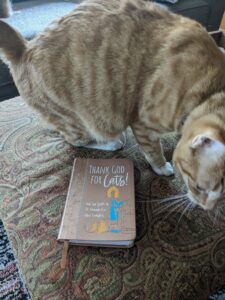
Writers often produce their work in a “white-hot heat.” We’re inspired and we get it down as quickly as we can. But beware: New writing isn’t always ready for prime time.
Writing Tip for Today: Here are some reasons why a resting period is good for most writing:
Killing Darlings
You’ve probably heard the advice (some attribute to Faulkner) to “kill your darlings.” This adage warns writers to go ahead and write as much purple (flowery or overwritten) prose as you wish. But later, you’ll need to decide if that great turn of phrase is really what the work requires.
Have you ever looked back at your older work and cringed? You are not the same writer, having practiced many hours. The same reaction awaits you if you neglect to pare back those “too much” places in your work. What sounds absolutely brilliant when you create may be the work’s undoing.
To kill a darling, ask yourself: does this phrase or passage contribute to the overall meaning? Or does it distract, feel too precious or stick out to you? If you wait a few days or weeks after drafting to evaluate, the answers may be obvious. Still not sure? Read the work aloud or to a trusted feedback group or person.
What’s the Message?
When I draft, I’m usually still forming my meta ideas for the work. What do I hope to communicate? Does this work clearly accomplish the goal? Am I drifting off-topic, ranting or self-pitying? We all do these things. The secret is in revision.
If you revise too quickly, however, you may not yet have the objectivity needed. That’s why so many writers advise setting a raw project on the shelf, back burner or similar for a time. My personal rule for short pieces is at least twenty-four hours between creating and revising. For book-length work I often lay aside the work for a month or two if I can.
Whether you write fiction or nonfiction, books or short pieces, give your projects time. As you wait (and work on something else), your major point or goal should crystallize and sharpen. When you wade into revision, you’ll have a better idea of what you want to convey.
Whether you write fiction or nonfiction, books or short pieces, give your projects time to breathe.
Time to Breathe
If you’re a serious writer, you already know to give your new work and even revised work, time to breathe. While one project sits on the back burner, you’ll want to have at least one more to work on. I usually have at least three different projects in rotation.
Of course, some writers are faced with tight deadlines. My feeling about quick-turnaround is that most writers who have these deadlines are either seasoned (well-published) or have honed their craft for a long time. Most noobs have too much time to tinker. Get in the habit of rotating a few different kinds of work (maybe you write a novel but also have a memoir and some poems) from the creation stage to revision.
You’re the best judge of how long to let a work rest before you tackle revision. Yet most well-published writers will say that revision number one is only the first of several (or many!). Learning to self-edit is more than changing a word here or there. After your work sits awhile, you may be able to start revising with the overall picture in mind.






The hardest thing is revising and not merely moving phrases and scenes around, like perfectly-good furniture I can’t bring myself to get rid of!
Hi J Balconi,
We all must wrangle with killing our darlings. Tune into tomorrow’s post–I’ll be discussing that rearranging thing.
Keep Writing!
Linda